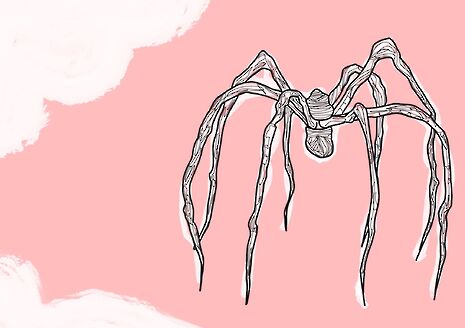A Poem for the News
Alice Brewer discusses personal and global narratives in ‘The Poem I Was Working On Before September 11, 2001’ by Maggie Nelson, dedicated to Louise Bourgeois.

Do you remember where you were when you heard about the Grenfell fire? Or the shooting of Jo Cox? I was caught up in exam stress for both of these events. The morning after Grenfell I was beginning the painful waking-up process, feeling under-revised for my next exam. It was my mother who came and told me in the late-morning brightness, told me about that awful, brutal, Victorian disaster.
It is this tension between the global tragedies and personal narratives that seem to cannibalize our lives that is captured by Maggie Nelson’s ‘The Poem I Was Working On Before September 11, 2001’. The small events of the poem – walking amongst art installations, an anxious love affair – are eclipsed by the title. It evokes the little fictions – the exams, the deadlines, the maintenance of a chronic nicotine addiction – that have dominated my time thus far at Cambridge, eclipsing the many disasters in the world beyond.
I get caught up in tiny narrative arcs which often remove me from the rest of the world
Nelson is probably most famous for writing The Argonauts. Her work talks a lot about queerness and art and the New York School of poets; her poetry is perhaps less well known than her prose. This poem captures the endlessly fascinating subplots of life – hating the weather, being in love – while the title predicates such narratives with disaster.
The Cambridge bubble – a trope that I am wont, perhaps formally-demanded, to mention in an article like this – short-circuits my sense of endpoints and, in part, attenuates my attention span. I get caught up in tiny narrative arcs which often remove me from the rest of the world and the grand sprawl of the 21st century news cycle. It’s easy to only really visit West Road and Sainsbury’s for weeks on end. I forget to call my friends.
The ending lines of the poem capture this sense of unreality brilliantly: ‘the clouds / moving across the mirrored Cineplex – they’re real, too’. The reminder of this reality – this other world, amongst the American weather and the fragmented relationship that Nelson depicts – is wonderful. The self-reflexive image of the mirror reminds me of the way I sometimes feel overwhelmed by the referential nature of my degree: the books that keep coming up as citations in the criticism I’m reading, new theories and poems to recognise in clever people’s jokes. And as I sit writing this, looking up to see the walls of my college reflected in the windows of another, I need reminding of the world beyond the overlapping architecture and friendship groups that seem to dominate my life here.
My favourite line, however, is this one: ‘You don’t pull me into you often but when you do you pull me into you’. The tautology is lovely – it describes the sense of hiatus between two people, and then re-affirms a sense of closeness. It reminds me of my own late-night cycles across the river to the octagonal room and single bed of my boyfriend, after anxiously tearing through another book or essay. He keeps me from stressing out, and I finally pull into him and push aside the detritus of my weekly deadlines and revision. And outside the long torso of history manifests another disaster.
 News / CUP announces funding scheme for under-represented academics19 December 2025
News / CUP announces funding scheme for under-represented academics19 December 2025 News / SU reluctantly registers controversial women’s soc18 December 2025
News / SU reluctantly registers controversial women’s soc18 December 2025 News / Cambridge welcomes UK rejoining the Erasmus scheme20 December 2025
News / Cambridge welcomes UK rejoining the Erasmus scheme20 December 2025 Features / Should I stay or should I go? Cambridge students and alumni reflect on how their memories stay with them15 December 2025
Features / Should I stay or should I go? Cambridge students and alumni reflect on how their memories stay with them15 December 2025 Film & TV / Timothée Chalamet and the era-fication of film marketing21 December 2025
Film & TV / Timothée Chalamet and the era-fication of film marketing21 December 2025










